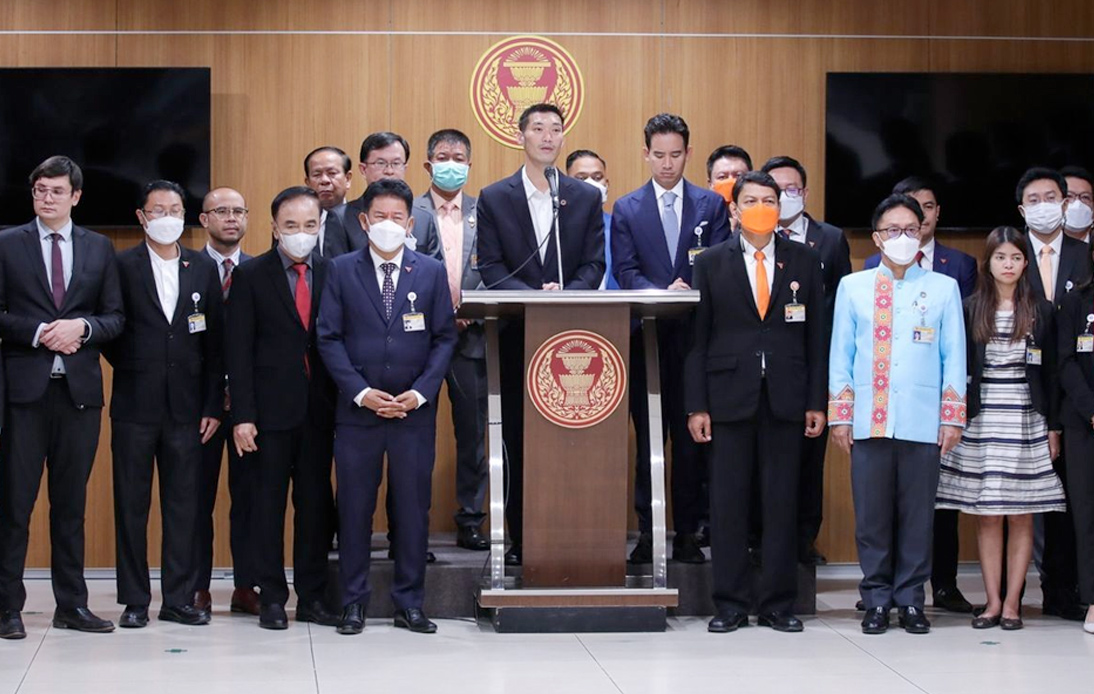
On Wednesday, a joint sitting of Parliament rejected a constitutional amendment bill to revise the charter’s Chapter 14, expecting to decentralize local administrative bodies’ control.
The Progressive Movement led by Thanathorn Juangroongruangki proposed the draft, which was backed by 76,591 signatures before being submitted to Parliament in July.
However, after a debate last week, Parliament set a vote on the bill. For the first reading to pass, it needed support from more than half, or 361 of 722 active members of the House and Senate combined.
The bill also required the support of at least one-third, or 84 sitting senators, to pass.
Parliament President Chuan Leekpai revealed that the joint sitting had voted 254-245 in favor of the bill with 129 abstentions. However, the results show that less than half of the current Parliament members backed it.
Support votes among sitting senators comprised less than the required half. Consequently, the bill was defeated and dismissed on its first reading.
Speaking to reporters after the vote, Mr. Thanathorn said Thailand had missed a good opportunity to move forward and regretted the results.
However, the Progressive Movement has vowed to continue its campaign to decentralize local government while seeking a better understanding of the ideas presented in the bill.
After it was submitted to Parliament, the bill received much criticism from various parties. Last week, Senator Lertrat Rattanawanich described it as “too radical” and difficult to implement, adding that he did not think more than a third of senators would vote in favor.
According to Gen Lertrat, the proposal had two main points of contention, including the allocation of budgetary funds for local administrative organizations, the provincial offices of the central administration’s dissolution, and how the local administrators would assume the functions.
If the project had been approved, the local governments would have obtained 50% of the national net income.
The second point of contention was related to a requirement that a plan for provincial state offices’ dissolution had to be drawn up within two years and put to a referendum within five years.
Under the amendment, state offices of public health, energy, transportation, and others (excepting security and foreign affairs only) would be dissolved if the public agreed to the plan.
In addition, the bill stipulated that Parliament must amend five or six relevant laws within 180 days, but that would be very difficult to do, Gen Lertrat explained.




















